Eco-Gardening: All you need to get started
Why it matters and how to do it
By Matt Rees-Warren
Ecological garden writer & designer
@matt_reeswarren
Gardening is in the throes of a revolution. There is the past: buzz-cut lawns, chemical-soaked flower beds, peat-filled soils and mains water; and there is the future: long grass, wandering wildflowers, organic compost and rainwater harvesting. Like food recipes from a bygone era – anyone for liver sausage pineapple? – we realise our folly and adapt our ideals and styles. Gardening is evolving in response to an ailing environment - we now look to live in harmony with the natural world, not plunder or destroy it needlessly.
“We are currently living through the most rapid decline of global wildlife since the meteor that wiped out the dinosaurs struck 65 million years ago.”
Dave Goulson, entomologist, author and uber bee man
Here in the UK, wildlife habitats are rapidly receding. Natural England state 97% of our wildflower meadows have disappeared since the 1930s; the Environment Agency suggests only 13% of English rivers are of good ecological standard; and The Woodland Trust reveal only 6.5% of UK land cover is native forest. This impacts species numbers with organisations such as the Butterfly Monitoring Scheme reporting a fall in numbers of 46% from 1967 to 2017, and a recent Nature Connections study showing a 33% decline in wild pollinators from 1980 to 2013. The RSPB, too, state there are 19 million fewer pairs of breeding birds in the UK compared to the 1960s.
97% of our wildflower meadows have disappeared since the 1930s
Eco-gardening, therefore, is simply a reaction to the times we live in - what we grow, our gardening craft and the materials we use matter. But do not despair! Our gardens, no matter how small, offer us the chance to aid these declining species, and what better way to beat the environmental blues than to step outside your door and do something about it right now! So, how do you become an eco-gardener? And, can you do it even in the smallest of spaces? Well, first, yes you can! Size really doesn't matter. And, second, I don’t know whether you’ve noticed, but gardening is pretty broad – there’s a lot going on. So, let’s simplify a little and look first at the three big daddies of the gardening world: plants, soils and water.
When buying or gathering new plants, in order to help our wildlife friends, we need to think about doing two things: planting more indigenous (native) plants and more pollinator-friendly plants. Sometimes, this can mean doing nothing - yes, nothing! Just let the grass grow long and leave the wandering wildflowers alone and you're halfway there. But here are some plants no eco-garden should be without:
Native Pollinator-friendly Plants
Wild marjoram (Origanum vulgare)
Native herb, pink flowers, bee magnet!
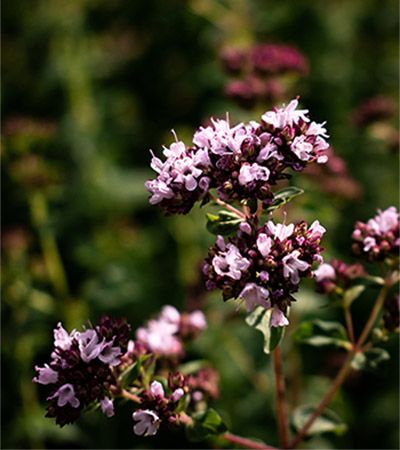
Ox-eye daisy (Leuc. Vulgare)
Long-flowering, natural style, pollinator provider
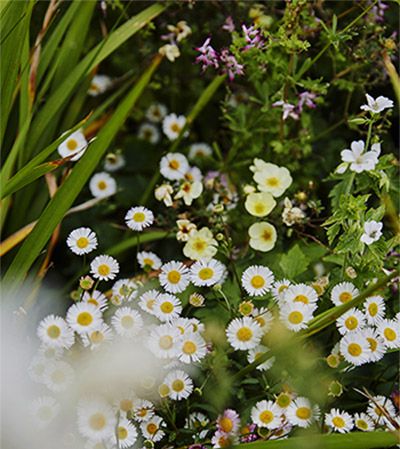
Hazel (Corylus avellana)
Cut stems for bean sticks, provide nuts for mammals
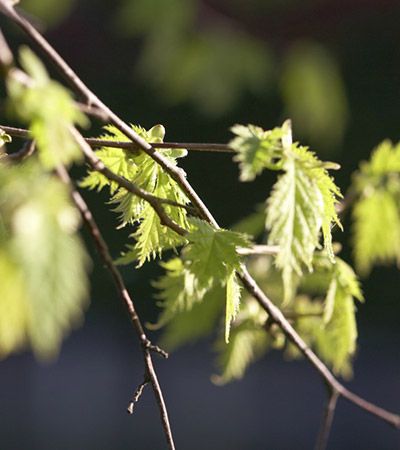
Lavender / Lavandula stoechas Anouk
Hardy, evergreen and aromatic, attractive to all pollinators
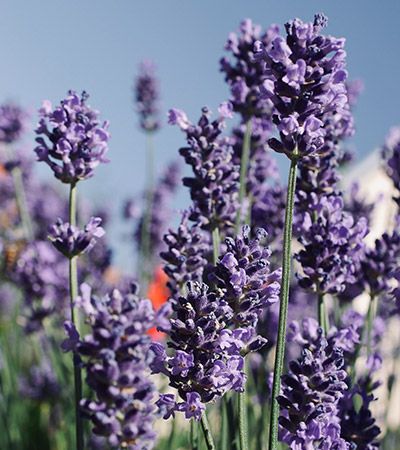
If we’re going to grow plants, we’ve got to have something to grow them in, right? So, we need soil. Our soils need protecting and nurturing, so the best way to do that is to enrich them with organic matter, i.e. compost. Making your own is the way to go, and it’s easier than you think - plus microorganisms and fungi are hipster cool right now, so what’s not to love? Here’s my top 3 tips to get you started:
Compost 101
50/50 Ratio
Keep a 50/50 ratio of green (foods scraps, grass etc) and brown material (cardboard, newspaper etc)
Turn
Make sure to ‘turn’ or aerate your pile at least once (if you don’t have space leave it to mature longer – 1-2 years)
If you're short on space
When you are composting on a small terrace or balcony use a compost bin. To manage leach ate, the liquid that seeps out during the process of composting, place the bin on soil or a base to avoid it staining the ground.
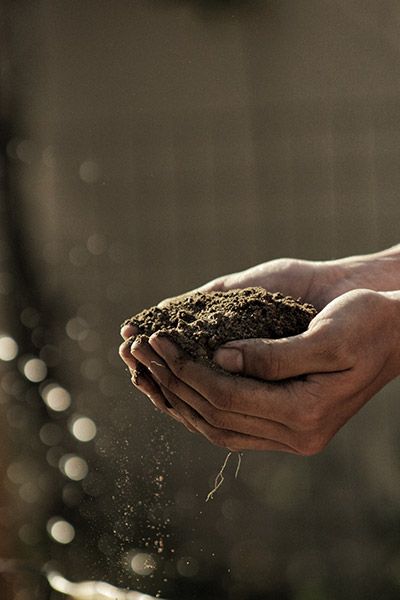
Extra Leaves
Collect a secondary pile of just leaves to make leafmould – great for starting off seeds and seedlings
Then, even though it seems to rain every day in the UK, we’re going to need water for those rambling, expanding beauties we shelled out hard bucks for. But not with the tap. I know, it’s just there, but don’t touch it. And do this instead:
Water saving tips
Collect rain by setting up a rainwater harvester.
Get a harvester – old whiskey barrels are great or use large pots if space is tight
Connect the harvester to a drainpipe attached to roof gutters, or use a ‘raincatcher’
above a single pot
Raise the harvester on bricks to allow a watering can to get under the tap
Using grey water
Water window boxes with grey water - that’s used domestic waste water. This could be from the kitchen, the washing machine or baths, basins and showers - but never from WCs because that should be consigned to the sewage system. We promise it’s ok, household soaps and detergents are harmless to plants (but watch out, the same cannot be said for bleach, disinfectants and dishwasher salt that can harm plants and damage soil over time).
Short of drainpipes?
Use less water by adding a layer of mulch to your beds and pots, this will help keep the soil beneath it moist and thereby reducing the need to water.
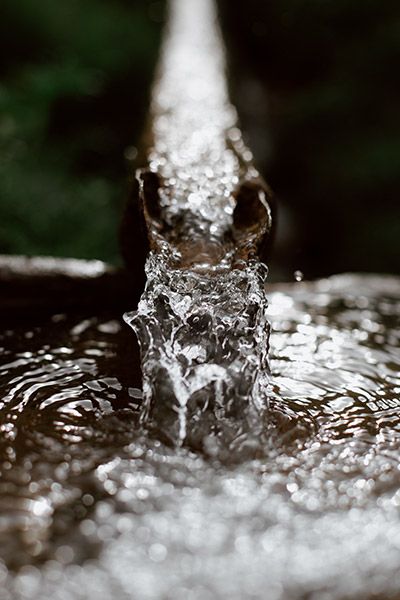
And if you’re lucky enough to have the space, we can also look to incorporate dedicated wildlife habitats like ponds, nettle beds, bug palaces and wood piles into our garden designs.
There’s so much you can do, but if you do just one thing here’s a headstart:
Reduce & reuse
If you are left with a plastic pot, then re-use it and don't chuck it. Look out for plastic alternatives such as fibre or terracotta pots for potting up seedlings; slate or wooden labels for veg; hazel plant supports for flowers and fruits; and replaceable wooden tool handles.
Look for an FSC logo
If you're buying anything that contains wood, like a new hand tool or garden bench look for an FSC certification - this means that the wood has come from well-managed forests and/or recycled sources.
Buy plant based fertilisers
At Sproutl we wont sell pesticides containing harmful chemicals, and our fertilisers are equally as kind to the soil and garden's wildlife. Look for plant based solutions, like those produced by Natural Grower, approved by both the Vegan society and the Soil Association.